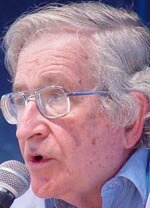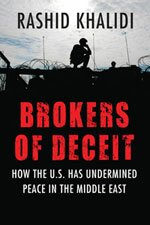[L]et’s face it. It isn’t that we don’t know what happened in 1947-1948. It’s that we’ve chosen not to see or hear anything that jars our thinking on the subject. Certain words and ideas have remained taboo, certain questions have been sidelined as suspect and certain histories – ours and theirs – have been excised, the better to educate us to numbness and indifference. The result is that we prefer to think of Israeli-Arab wars as instances of the much lamented ‘clashes of civilization’ that pit our civilized allies against the violence-prone ‘other,’ As long as our side wins, there is no need to look into the face of the ‘enemy,’ or to ask ourselves why and why again? Admittedly, doing so risks discovering that ‘they’ are like us, which is as disconcerting as learning that what the ‘experts’ have taught us about our history and theirs is often plain wrong, leaving us to discover that deception can be dangerous.
US-Israel
An uneasy cease-fire has been declared ending Israel’s attack on Gaza, Operation Pillar of Defense. Take this quiz to see how much you know about the situation.
The ceasefire agreed by Israel and Hamas in Cairo after eight days of fighting is merely a pause in the Israel-Palestine conflict. It promises to ease movement at all border crossings with the Gaza Strip, but will not lift the blockade. It requires Israel to end its assault on the Strip, and Palestinian militants to stop firing rockets at southern Israel, but it leaves Gaza as miserable as ever.
The inciting cause of the latest confrontation between Israel and Hamas has little to do with the firing of rockets, whether by Hamas or the other Palestinian factions. The conflict predates the rockets – and even the creation of Hamas – by decades. It is the legacy of Israel’s dispossession of Palestinians in 1948, forcing many of them from their homes in what is now Israel into the tiny Gaza Strip. That original injustice has been compounded by the occupation Israel has not only failed to end but has actually intensified in recent years with its relentless siege of the small strip of territory.
Obama may not have to worry about re-election but he will not want to hand a poisoned legacy to the next Democratic presidential candidate, nor will want to mire his own final term in damaging confrontations with Israel.
After two days of expert testimony by notables such as public intellectual Noam Chomsky and Israeli historian Ilan Pappé, heard before a packed crowd that included actors Harry Belafonte and Wallace Shawn at Cooper Union’s Great Hall, jurors concluded, “Israel’s ongoing colonial settlement expansion, its racial separatist policies, as well as its violent militarism would not be possible without the US’s economic, military, and diplomatic support.”
Hanan Ashwari: “Typical American behaviour but also overkill. It is ridiculous and unconscionable the way they put themselves at the service of Israel in such a blatant way. This is tremendous American pressure and bias.”
The Russell Tribunal on Palestine (RToP) will be holding its fourth international session in New York City on Saturday, October 6 and Sunday, October 7. The RToP is an International People’s Tribunal created in response to the international community’s inaction regarding Israel’s recognized violations of international law. The Tribunal aims to bring attention to the complicity and responsibility of various national, international and corporate actors in the ongoing Israeli occupation of Palestinian territories and the perpetuation of Israel’s impunity under international law.
Actor Wally Shawn explains why the Russell Tribunal on Palestine is, at this moment in time, crucial, and why you should join.
Politicians may prefer to express admiration of Israel, and hand over billions of dollars in aid, but the US security establishment has – at least in private – always regarded Israel as an untrustworthy partner. The distrust has been particularly hard to hide in relation to Iran. Mounting pressure from Israel appears to be designed to manoeuvre Washington into supporting an attack on Tehran to stop it supposedly developing a nuclear weapon.
Like its patron, Israel resorts to violence at will. It persists in illegal settlement in occupied territory, some annexed, all in brazen defiance of international law and the U.N. Security Council. It has repeatedly carried out brutal attacks against Lebanon and the imprisoned people of Gaza, killing tens of thousands without credible pretext.
The California State Assembly has just passed a bipartisan resolution (HR 35) by voice vote which constitutes a serious attack on academic freedom and the rights of students and faculty to raise awareness about human rights abuses by U.S.-backed governments. While purporting to put the legislature on record in opposition of anti-Semitism on state university campuses, it defines anti-Semitism so widely as to include legitimate political activities in opposition to Israeli government policies.
A nuclear demilitarization of the Middle East is the answer to the Israelis greatest quandary. The validity of this demand has never been more clear. The religion that has developed here – the basic belief that only we should have nuclear weapons, because we are the arm of God – has reached a dead end.
Mouin Rabbani: Many of those who favor a one-state solution see it as the antithesis of the two-state solution, yet you seem to be suggesting a continuum.
Noam Chomsky: I don’t know of any other sensible way that has been proposed to move towards a binational, or one-state, solution other than accepting the world as it is and then taking the next step, which has been pretty clear for thirty years. There’s an overwhelming international consensus behind the two-state settlement essentially along the internationally recognized borders. I think it’s a rotten solution but I think it’s a stage towards a better solution, and I don’t know of any other approach.
Europe’s only real leverage over Israel is economic: business between the two already accounts for about 60 per cent of Israeli trade, worth nearly 30 billion euros (Dh136 billion). But rather than penalising Israel for repeatedly stomping over the flimsiest prospects for a two-state solution, the EU is handsomely rewarding it.
Senior EU diplomat: “I was struck by the fact that a whole range of relations was offered to Israel – at the request of Israel – as if nothing is happening on the ground… Most ministers are too afraid to speak out in case they are singled out as being too critical towards Israel, because, in the end, relations with Israel are on the one hand relations with the Jewish community at large and on the other hand with Washington – nobody wants to have fuss with Washington. So [ministers] are fine with making political statements but they refrain from taking concrete action.”
The Defense Ministry recently contracted an architect to resume construction of the Givat Sal’it outpost in the Jordan Valley, in what is seen as a step toward legitimizing the outpost. Givat Sal’it is one of 26 communities the Sharon government had promised the United States it would tear down nearly 10 years ago.
Societies cannot have democracy imposed from without, as though it were an item to be ordered from a lunch menu. The West’s democracies, imperfect as they are, were fought for by their peoples over centuries at great cost, including horrific wars. Each state developed its own checks and balances to cope with the unique political, social and economic conditions that prevailed there. Those hard-won freedoms are under constant threat, not least from the very same political and economic elites that so vociferously campaign for humanitarian interventions abroad.
Every year the US allocates $250 million to UNRWA, which provides food as well as health, education and employment services to millions of Palestinians in Jordan, Lebanon, the Gaza Strip and the West Bank. For years Congressional representatives have been trying to reduce U.S. contributions to the agency, on the grounds that UNRWA was born in sin and that its policies are anti-Israeli.























